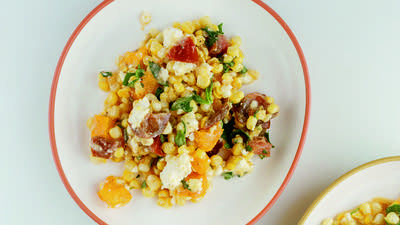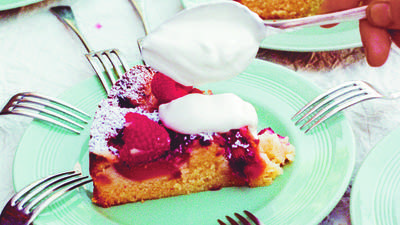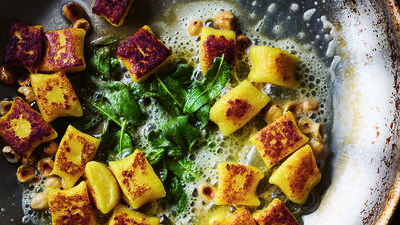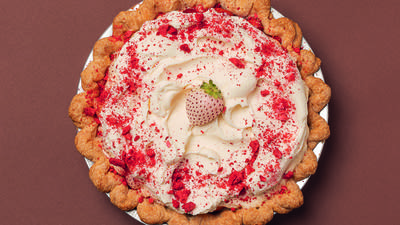Dorie Greenspan, author of Bon Appétit magazine's "Tools of the Trade" column, says the right rolling pin will give you a leg up when it comes to working with pastry dough. For her, that means a simple wooden French-style rolling pin. Generally made of boxwood or tight-grained beech and weighing 1 1/4 pounds, they are a uniform 2 inches across and have gently rounded (never tapered) ends and no handles. Even Julia Child, who owns myriad rolling pins, says she reaches for her French pin first.
A French pin is low maintenance, requiring only a damp cloth for cleanup. You can gently scrape off any stubborn particles with a dough scraper or the straight side of a kitchen knife but take care not to nick or gouge the wood. And never use a rolling pin to crush peppercorns, spices or nuts.
Dorie says forget about pins made of marble because they'll drag on the dough, and aluminum ones can turn egg doughs gray. Likewise, pins that you fill with ice are undesirable because the condensation that forms on the pin can result in soggy dough. Heavy, two-handled pins 18 inches in length and weighing four pounds are fine for coaxing puffy yeast doughs into the desired shape, but they're too heavy for cookies and pastry.
Before you go...
Each week, The Splendid Table brings you stories that expand your world view, inspire you to try something new, and show how food connects us all. We rely on your generous support. For as little as $5 a month, you can have a lasting impact on The Splendid Table. And, when you donate, you’ll join a community of like-minded individuals who love good food, good conversation, and kitchen companionship. Show your love for The Splendid Table with a gift today.
Thank you for your support.
Donate today for as little as $5.00 a month. Your gift only takes a few minutes and has a lasting impact on The Splendid Table and you'll be welcomed into The Splendid Table Co-op.



